US Election 2016: Inside the tortured mind of an anti-Trump Republican
- Published
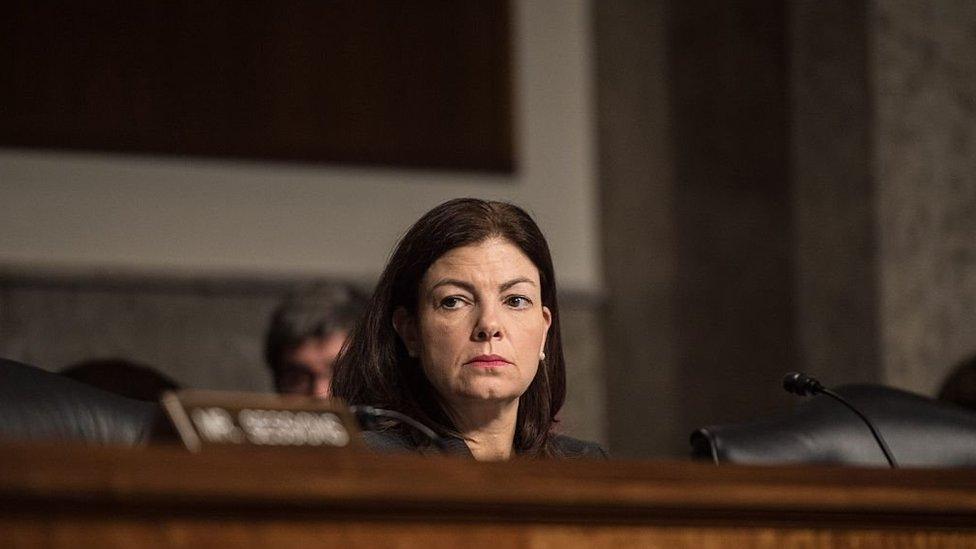
Ayotte's political career is in jeopardy following her tortuous dance over Trump
Several of the US Republicans who have distanced themselves from the party's presidential nominee, Donald Trump, face tight re-election contests next month, prompting several to agonise over where they stand.
Some who have condemned Mr Trump - for the lewd remarks captured on video and released last week - have faced a backlash from voters.
And others have been decried by their electorate for not rebuking the businessman.
Which Republicans have deserted Trump?
Kelly Ayotte, a New Hampshire senator, typifies the kind of tortured journey some have gone on as, say critics, they try to second-guess where the public allegiance lies.
Here is how her position has evolved.

For Trump - 29 February
Ms Ayotte dismissed early concern about Mr Trump's eligibility for office, stating she intended to vote for whichever candidate, external led the Republican party into the election.

For Trump - 4 May
With Trump outshining his rivals during the Republican primaries, representatives of the senator re-emphasised her support, external for the candidate in a statement.
They declined to formally endorse him however. The Washington Post coined her half-hearted show of faith the Trump "support-endorse two-step", external - a move many wavering Republicans would later follow.
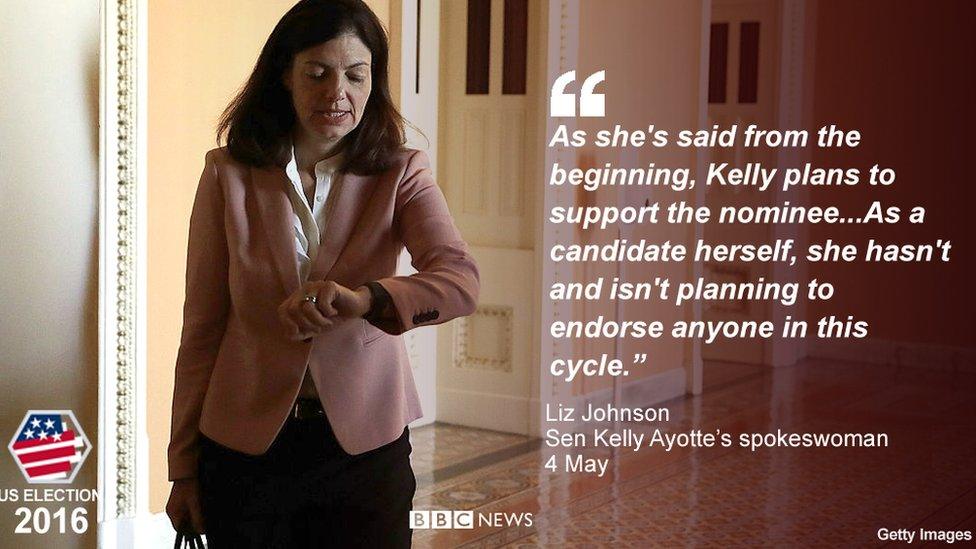

For Trump - 6 June
Soon after condemning Donald Trump for "offensive and wrong" remarks about a US district court judge, Ms Ayotte re-stated that she will vote for the Republican candidate.
In Democratic-leaning New Hampshire, her lingering support provoked ire from important members of the media, including the Boston Globe, whose editorial board called her position "inexcusable" in an op-ed, external published on 9 August.

Against Trump - 20 July
Having played a visible part in the 2012 Republican National Convention, where she endorsed Mitt Romney for president, Ms Ayotte joined a host of other Republicans, external in not attending this year's event.
She claimed she needed to focus on her own election campaign.

Against Trump - 31 July
After the Democratic National Convention, Mr Trump launched into a Twitter war with the parents of a deceased and decorated US Muslim soldier.
Ms Ayotte, who is married to a soldier, said she was "appalled that Donald Trump would disparage them" , externaland was incredulous "that he had the gall to compare his own sacrifices to those of a Gold Star family."
Trump called Ayotte "weak", external in a response a few days later.


For Trump - 3 October
During a televised debate with her rival for the Senate in New Hampshire, Ms Ayotte was asked if she believed Mr Trump was a good role model.
After hesitating, she replied, external: "I believe he can serve as president, so absolutely."
The comment sparked outrage on social media and a humiliating negative advertisement campaign led by Democrats.

Against Trump - 3 October
The New Hampshire senator backtracked on her "role model" comment hours later.
"I misspoke tonight," she said in a statement posted on Twitter, external. "While I would hope all of our children would aspire to be president, neither Donald Trump nor Hillary Clinton have set a good example and I wouldn't hold up either of them as role models for my kids."

Against Trump - 8 October
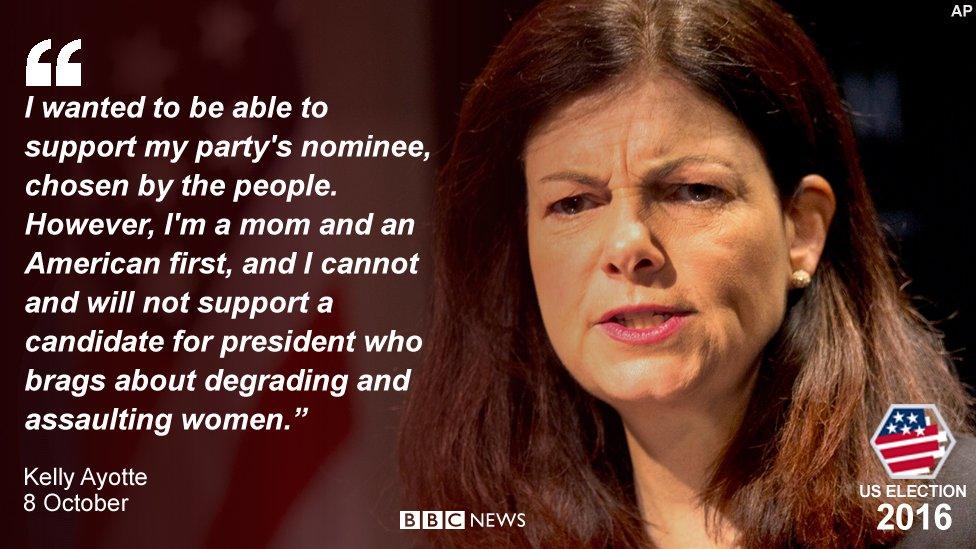
Ms Ayotte finally quit the Trump camp after the leak of a video showing him making lewd remarks about women.
On Twitter, she announced she will be voting for running mate Mike Pence instead.

And she's not the only one to change her mind...
Senator Deb Fischer of Nebraska has returned to the Trump fold after saying on Saturday his taped remarks were "disgusting and totally unacceptable", and calling on him to stand down.
Three days later she said she respected his decision not to step aside and would be voting for him. She is not standing for re-election until 2018.
Senator John Thune has also changed his tune, from calling on the party to install Mike Pence as the nominee to insisting he would vote for Trump.
- Published2 November 2016
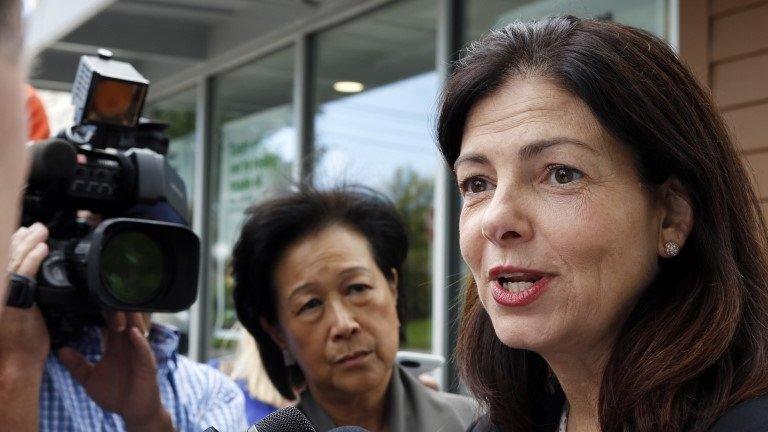
- Published10 October 2016
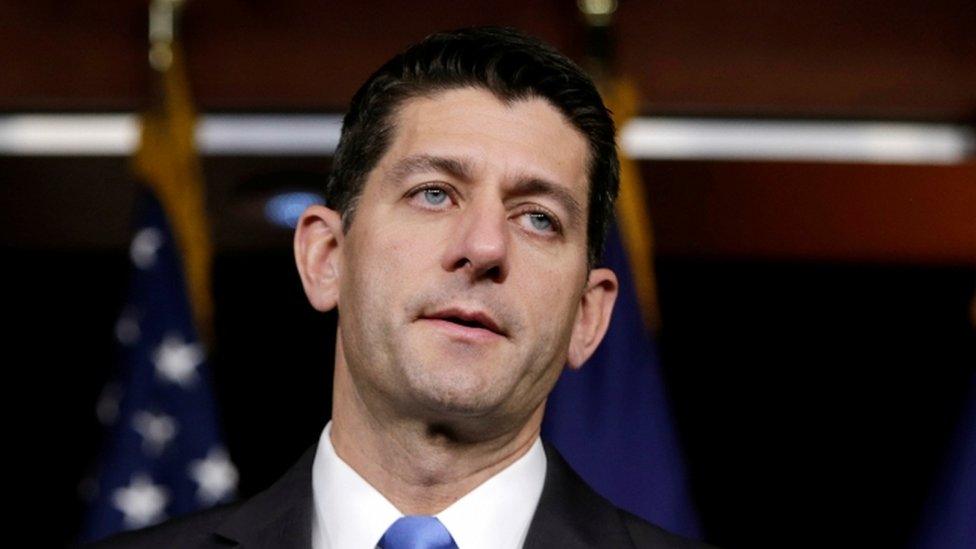
- Published8 October 2016

- Published8 October 2016
